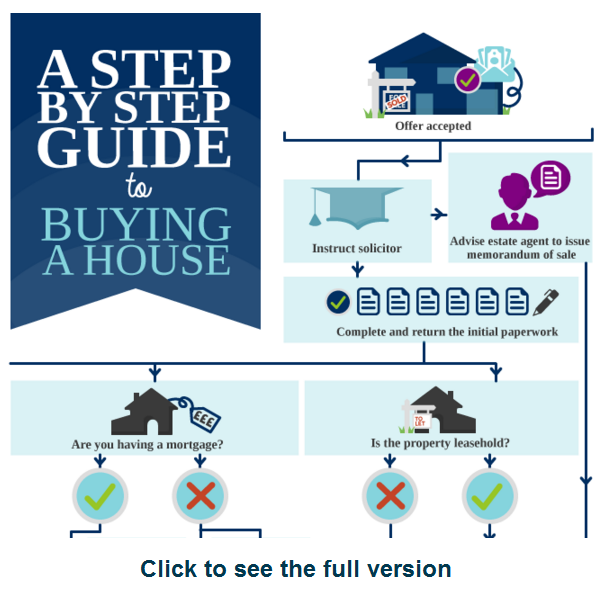
Buying your first home can be extremely daunting, but at Howells Solicitors, we believe it needn’t be confusing. Each month across the UK, we complete property purchases worth over £50million, carrying out each of these transactions quickly and efficiently. With this in mind, we thought that in order to help out those climbing onto the first rung of the property ladder, we’d share our wealth of experience and put together this simple guide.
When You Start Thinking About Getting on the Property Ladder
Saving for a Deposit
Before you even start looking for a property, you will need to save up for a deposit to put towards its cost. When doing this, it’s helpful to have an idea of the cost of the home you would like to buy, so you will need to spend time researching what is available in the area you would like to live.
At the moment in the UK, you will need to save at least 5% of a property’s value before you can apply for a mortgage (usually as a part of the Help to Buy Scheme or the UK Mortgage Guarantee Scheme, which you can find out about here). Those who are able to save more, however, will have access to more competitive mortgages, and the average deposit for first-time buyers is 20%.
Securing a Mortgage in Principle
When searching for your first property, it’s often helpful to secure a mortgage in principle with a lender, as this will speed up the process when you find the right one, and show estate agents and sellers that you are serious about your intention to buy.
There are many first time buyer mortgages available, but the best one for you will depend upon your personal circumstances. When deciding how much of a mortgage to take out, it’s essential to not only consider how much of a mortgage you can get, but how much you can realistically afford to pay in repayments every month.
How Much Can You Afford?
Mortgage lenders cap the loan to income ratio at four and a half times your income. So, if you earn £24000 a year, the most a lender will offer you is £108000. They will also consider whether you can afford these repayments, taking into account your personal and living expenses using an affordability assessment. To carry this out, your lender will require proof of your ID, evidence of your earnings, proof of your address over the last few months and copies of your bank statements.
As well as this, lenders will also look ahead and ‘stress test’ whether or not you will continue to be able to afford your repayments should interest rates rise or your personal circumstances change due to things like redundancy or having children.

Viewings and Putting an Offer in
When searching for your new property, it’s essential to find out as much about the properties you are viewing as possible. Think about things like:
- Visiting the property at different times of day to find out how noisy/busy the area gets
- Asking for a demonstration of the heating/plumbing
- Looking behind furniture and curtains for signs of damp
- Finding out if gas and electricity checks have been done recently
- Asking about council tax and utility bills
- Asking why the seller is selling and finding out if they are in a hurry to sell, as they may be willing to accept a lower offer in order to make a sale.
Once you have satisfied yourself with the above, you will be in a better position to start negotiating on price. First time buyers with pre-arranged mortgages have a head start when making an offer to buy a property, so should make the estate agent and seller aware of their position as it can be favourable when negotiating, particularly if the seller is in a chain.
Before you begin negotiating, it is vital that you decide and stick to your maximum price from the start. Research what the property is truly worth by seeing what similar houses in the area are selling for. It’s also important to remember that the property has any faults or needs repair work, you may be able to justify a lower offer. Finally, when you do make an offer, make it clear that it's subject to contract and a satisfactory survey.
Starting the Conveyancing Process
Once you’ve had an offer on a house accepted, you should ask the seller to take the property off the market to prevent other buyers making an offer. Unfortunately, the seller doesn’t legally have to do this, which could leave you open to a situation known as ‘gazumping’, which happens when the seller accepts an offer but then accepts a higher offer from another purchaser.
For this reason, once you’ve made your offer, you need to act quickly to put your purchase into motion. To find out how to do this, take a look at our simple infographic.


